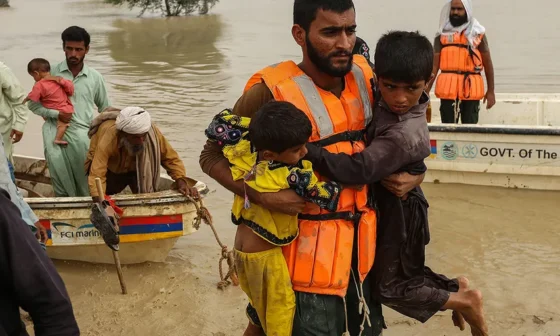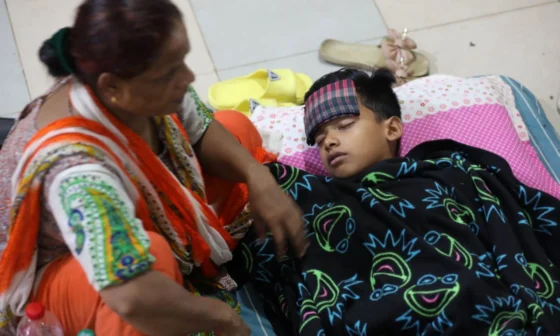Antibiotics have long been hailed as miracle drugs, saving millions of lives from deadly bacterial infections. However, their misuse and overuse have created a silent yet alarming threat in Pakistan—antimicrobial resistance (AMR). In many communities, antibiotics are used without proper prescriptions, taken in incomplete doses, or misused for illnesses like viral colds and flu where they are completely ineffective. Pharmacies in both urban and rural areas often sell antibiotics over the counter without medical supervision, fueling the rise of resistant bacteria. Hospitals, too, contribute to the crisis with over-prescription, poor infection control, and lack of diagnostic facilities. This growing antibiotic resistance means that common infections are becoming harder to treat, leading to prolonged illnesses, higher medical costs, and an increased risk of death. The situation has reached a point where global health experts warn of a “post-antibiotic era,” where even minor wounds or routine surgeries could become life-threatening.

Overprescription Of Antibiotics In Pakistan- A Legal Context
A story from Karachi highlights the devastating consequences of antibiotic misuse. Ahmed, a 42-year-old shopkeeper, developed a mild urinary tract infection but avoided visiting a doctor to save time and money. Instead, he bought a random antibiotic from a nearby pharmacy based on a friend’s advice. After a few days, when his symptoms did not improve, he switched to another antibiotic suggested by the pharmacist. Unfortunately, by the time he finally visited a hospital, the infection had worsened and the bacteria had developed resistance to multiple drugs. Ahmed was admitted to the ICU, requiring expensive, last-resort antibiotics to control the infection. His case is not unique—many patients across Pakistan are unknowingly contributing to antibiotic resistance by self-medicating or failing to complete prescribed courses.

Antibiotic-resistant superbugs could kill 39 million people by 2050, researchers warn
Several factors drive the misuse of antibiotics in Pakistan. Lack of awareness among the public is a major contributor; many people believe antibiotics are “strong medicines” that can cure any illness, even viral infections like the common cold. Poverty and limited access to doctors push families toward self-medication, as consulting a healthcare professional can be costly. Pharmacies often sell antibiotics freely without prescriptions, prioritizing profit over public health. In hospitals, the absence of proper diagnostic tools leads to “blind prescribing,” where doctors give broad-spectrum antibiotics just to be safe. In rural areas, untrained healthcare providers and quacks commonly administer unnecessary antibiotic injections to gain patient trust. These practices accelerate the spread of drug-resistant bacteria, which can easily move from person to person in crowded cities and unhygienic conditions.

Engaging local communitiesin the fight against Antigmicrobial resistance: A call for inclusive action
The public health consequences of antibiotic misuse are severe and far-reaching. Infections that were once easily treatable, such as pneumonia, tuberculosis, and typhoid fever, are becoming resistant to first-line drugs. Multidrug-resistant tuberculosis (MDR-TB) has already emerged as a serious problem in Pakistan, requiring long and toxic treatment regimens. Resistant strains of typhoid have caused outbreaks in Sindh, forcing doctors to rely on costly, last-resort antibiotics that are often unavailable in rural areas. Antibiotic-resistant infections lead to longer hospital stays, higher medical bills, and increased mortality rates, disproportionately affecting the poor. Moreover, resistance threatens medical procedures like organ transplants, cancer treatments, and cesarean deliveries, which depend on effective antibiotics to prevent infections.

When the drugs don’t work: the people facing the reality
Addressing antibiotic misuse requires coordinated action at multiple levels. Public awareness campaigns are crucial to educate people about the dangers of self-medication and incomplete treatments. Pharmacies must be strictly regulated to ensure antibiotics are only dispensed with valid prescriptions. Hospitals need robust antimicrobial stewardship programs to monitor and guide antibiotic use, ensuringEdoctors prescribe the right drug at the right dose for the right duration. Diagnostic laboratories should be strengthened to identify infections accurately, reducing the reliance on unnecessary broad-spectrum antibiotics. On a larger scale, improving hygiene, sanitation, and vaccination coverage can reduce the spread of infections, lowering the demand for antibiotics in the first place. Veterinary use of antibiotics in livestock farming also needs regulation, as resistant bacteria can spread from animals to humans through food.

Overprescribing antibiotics poses ‘serious’ risk of antimicrobial resistance in Pakistan— health experts
The rise of antibiotic resistance in Pakistan is not just a medical problem—it is a ticking time bomb that threatens the entire healthcare system. Ahmed’s story is a reminder of how easily a simple infection can spiral into a life-threatening condition when antibiotics are misused. The government, healthcare professionals, and the public must work together to preserve the effectiveness of these life-saving drugs. Antibiotics should be treated as a precious resource, not a quick-fix solution for every illness. By promoting responsible use, improving healthcare access, and enforcing regulations, Pakistan can still prevent a future where minor infections become deadly once again. Protecting antibiotics today will save countless lives tomorrow.
References
Global Health Security Agenda (2023). “Strategies to Combat AMR in South Asia.”
World Health Organization (2023). “Antimicrobial Resistance: Global Threat and Local Action in Pakistan.”
National Institute of Health Pakistan (2022). “Patterns of Antibiotic Misuse in Urban and Rural Communities.”
The Lancet Infectious Diseases (2023). “Multidrug-Resistant Typhoid Outbreaks in Sindh.”
Pakistan Medical Association (2023). “The Role of Pharmacies in Antibiotic Misuse.”
Journal of Antimicrobial Chemotherapy (2022). “Hospital Antibiotic Stewardship Programs in Developing Countries.”
UNICEF Pakistan (2023). “Public Awareness and Antibiotic Resistance: The Need for Behavior Change.”
Dawn News Health Report (2023). “Why Antibiotic Resistance Is a Silent Crisis in Pakistan.”






